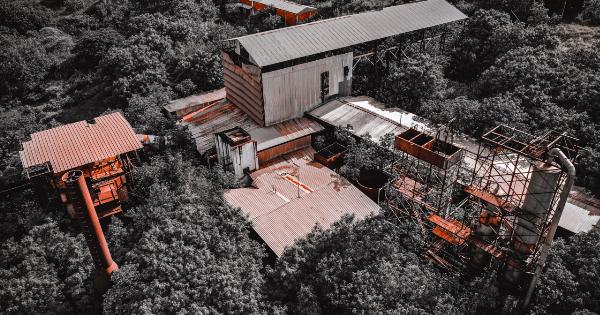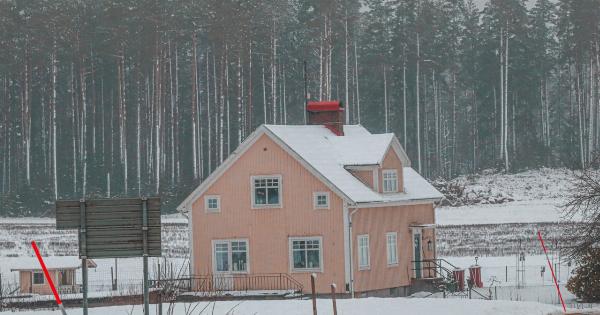Copper is a vital metal that plays a crucial role in various industries and technologies. From electrical wiring to construction materials, this versatile metal is indispensable in today’s world.
In this article, we will explore the origins of copper, how it is extracted, its importance, and the numerous reasons why we need it in our daily lives.
What is Copper?
Copper is a chemical element with the symbol Cu and atomic number 29. It is a soft, ductile metal with excellent thermal and electrical conductivity.
Copper has been used by humans for thousands of years due to its malleability and impressive ability to conduct heat and electricity.
Origins of Copper
Copper is not created naturally in pure form; instead, it occurs as a compound in various minerals. Most of the copper found on Earth is a result of volcanic activity and the subsequent cooling and solidification of magma.
Over time, these copper-rich rocks are weathered, eroded, and deposited in various geological settings. This is how copper ore deposits are formed.
Copper Mining and Extraction
When copper ore deposits are discovered, the process of extraction begins. There are two primary methods of extracting copper:.
1. Open-Pit Mining
In open-pit mining, large pits or quarries are created on the surface of the Earth. Heavy machinery is used to remove the overburden (rock and soil covering the mineral deposits) to expose the copper ore.
This method is commonly used when the copper deposits are near the surface and can be easily accessed.
2. Underground Mining
In underground mining, tunnels and shafts are created to access deep-seated copper deposits. Miners extract the ore using various mining methods, such as block caving, room and pillar mining, and sub-level caving.
This method is employed when the copper deposits are buried deep beneath the surface.
Purification Process
Once copper ore is extracted, it undergoes a purification process to remove impurities and obtain pure copper. The most common method of purifying copper ore is through a process called smelting.
In this process, the ore is heated at high temperatures in a furnace, and various chemical reactions take place, separating the copper from unwanted materials.
Uses of Copper
Copper is widely used in different industries and applications due to its unique properties:.
1. Electrical Wiring
One of the most significant uses of copper is in electrical wiring. Copper has excellent electrical conductivity, low resistance, and high corrosion resistance.
These properties make it an ideal choice for carrying electric current over long distances with minimal energy loss. Copper wiring is used in residential, commercial, and industrial buildings.
2. Electronics Industry
Copper is extensively used in the electronics industry for the production of various components. Printed circuit boards (PCBs) often have copper tracks and pads to facilitate electrical connections between different electronic components.
3. Construction Materials
Copper is commonly used in construction materials due to its durability and corrosion resistance. It can be found in roofing materials, plumbing systems, decorative elements, and indoor/outdoor fittings.
4. Transportation Sector
In the transportation sector, copper is used in the manufacturing of automobiles, trains, and airplanes. It is used in wiring, connectors, and various engine components.
5. Renewable Energy
Copper plays a vital role in renewable energy technologies such as solar power and wind turbines. It is used in the manufacturing of solar panels, electrical cables, and windings for generators.
6. Coinage
Historically, copper has been used for coinage due to its durability and ability to resist corrosion. While most modern coins are now made from alloys, copper is still used in many countries.
7. Antimicrobial Properties
Copper has natural antimicrobial properties, making it suitable for various applications in healthcare settings. It is used in medical equipment, door handles, and touch surfaces to help reduce the spread of harmful microorganisms.
8. Art and Decoration
Copper’s unique appearance and malleability make it a popular choice in art and decoration. It can be molded, sculpted, and etched to create intricate designs and ornamental pieces.
9. Heat Exchangers
Due to its excellent thermal conductivity, copper is used in heat exchangers. These devices transfer heat between fluids and are commonly found in air conditioning systems and refrigerators.
Why Do We Need Copper?
We rely on copper for numerous reasons, and its importance cannot be overstated. Here are some key reasons why we need copper:.
1. Electrical Conductivity
Copper’s outstanding electrical conductivity makes it essential for various electrical and electronic applications. Without copper, it would be challenging to transmit and distribute electricity efficiently.
2. Energy Efficiency
Copper’s conductivity not only enables the transmission of electricity but also helps in maximizing energy efficiency. Copper wires experience minimal energy loss during transmission, reducing overall energy consumption and cost.
3. Sustainable Energy Technologies
As the world shifts towards sustainable energy generation, copper is playing a crucial role in technologies like solar panels, wind turbines, and electric vehicles. These technologies rely heavily on copper due to its conductivity and durability.
4. Infrastructure Development
Copper is indispensable in infrastructure development, including the construction of buildings, bridges, and transportation networks. Its durability and corrosion resistance ensure the longevity and safety of these structures.
5. Health and Hygiene
Copper’s antimicrobial properties have led to its use in healthcare settings, reducing the spread of infections and providing cleaner environments.
It also plays a role in personal hygiene products such as antimicrobial coatings for surfaces and textiles.
6. Economic Importance
Copper mining and production contribute significantly to economies worldwide. Many countries rely on copper exports as a source of revenue and employment, making it a valuable commodity.
7. Recycling and Sustainability
Copper is highly recyclable without losing its essential properties. Recycling copper reduces the demand for new mining, conserves natural resources, and minimizes environmental impact.
Conclusion
Copper is a vital metal that is fundamental to various industries and technologies. It is an irreplaceable material in electrical wiring, construction, transportation, renewable energy, and many other applications.
Our dependency on copper stems from its exceptional properties and versatility. As we continue to advance technologically, the demand for copper remains high, highlighting its critical role in shaping our modern world.




























